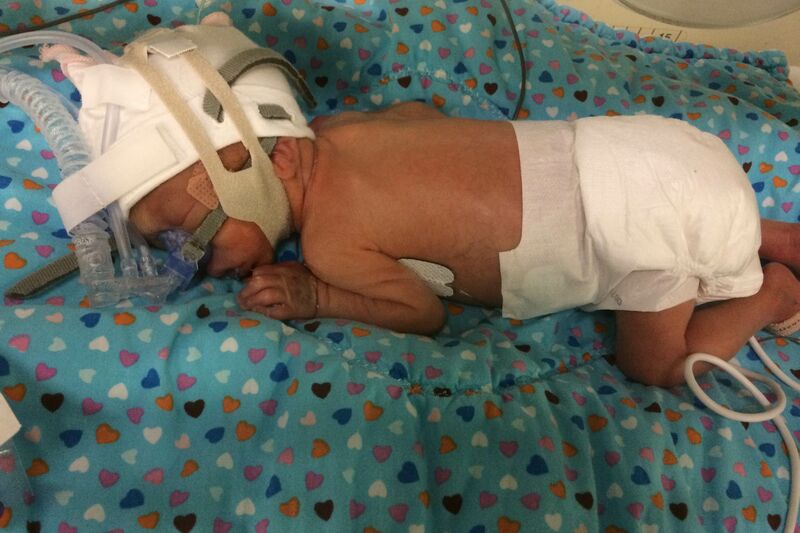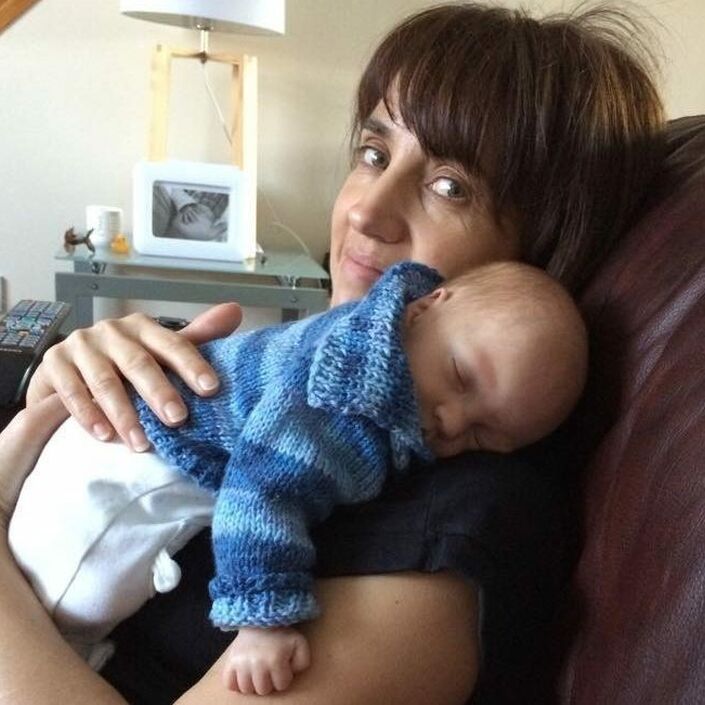At just 27 weeks pregnant, I developed pre-eclampsia that rapidly worsened. The doctors tried to keep the baby in as long as possible, and every day, every hour that I got was a blessing.
By 29 weeks, I had begun to develop HELLP syndrome alongside the pre-eclampsia and not only was my baby going downhill fast, but my organs started failing. This resulted in me being transferred from my local hospital, St John’s Livingston, to Edinburgh Royal Infirmary (ERI), and on the morning of 4 November 2014 my darling Matthew was delivered via emergency c-section weighing just 2lb 5oz.
Matthew was immediately taken away to neonatal care and in his first few hours was resuscitated, ventilated then eventually put onto C-PAP. I had already begun mentally mourning, thinking that I was about to lose my first child. He was born at 7.01am, but it was late afternoon before I was able to see him due to being rushed back into theatre after delivery because I was haemorrhaging.
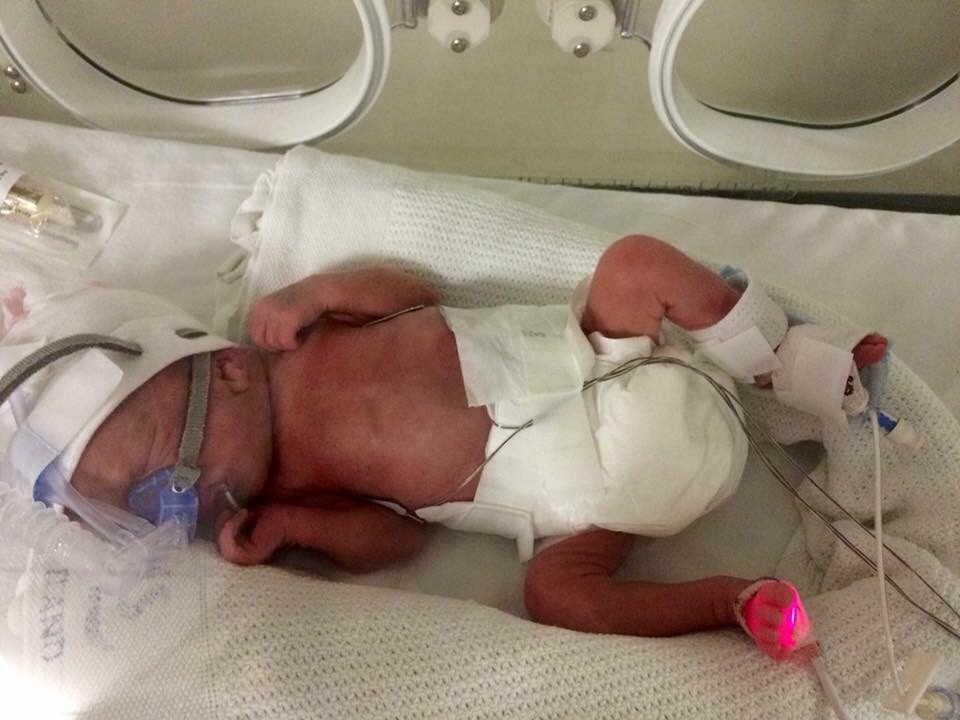
I remember reaching through the incubator port hole, and touching Matthew’s tiny hand, thinking: “Look how perfect you are, five tiny fingers with tiny nails smaller than a grain of rice.” I then tried to put my emotions on hold because I was so scared of losing him and the pain that that would entail.
On Matthew’s second day of life, I went to the neonatal unit to see him and the doctors and nurses gushed about how amazing he was doing. I was left alone with him, and I couldn’t stop myself any longer, I just fell completely head over heels in love with this tiny little miracle.
After five days at ERI, I was told I was being discharged. This meant I was going to go home, not pregnant, and with no baby to show for it. The heartache was absolutely indescribable, it felt like I left my right arm behind.
From then I had to rely on friends and family taxiing me around as I had been told it would be six weeks before I could drive again. It was frustrating, I had so much anxiety because I just wanted to be there as soon as I woke up in the morning. By the second week I had had enough and went to my GP and told him to sign me back on for driving. “Can you do an emergency stop safely?” He asked. “I’ll do anything to be with my baby” I replied.
Matthew was five days old when I got to hold him for the first time. The feeling of him sitting on my chest, his little feet kicking my tummy from the outside this time, felt so blissful and I felt complete again. I had got my missing piece back.
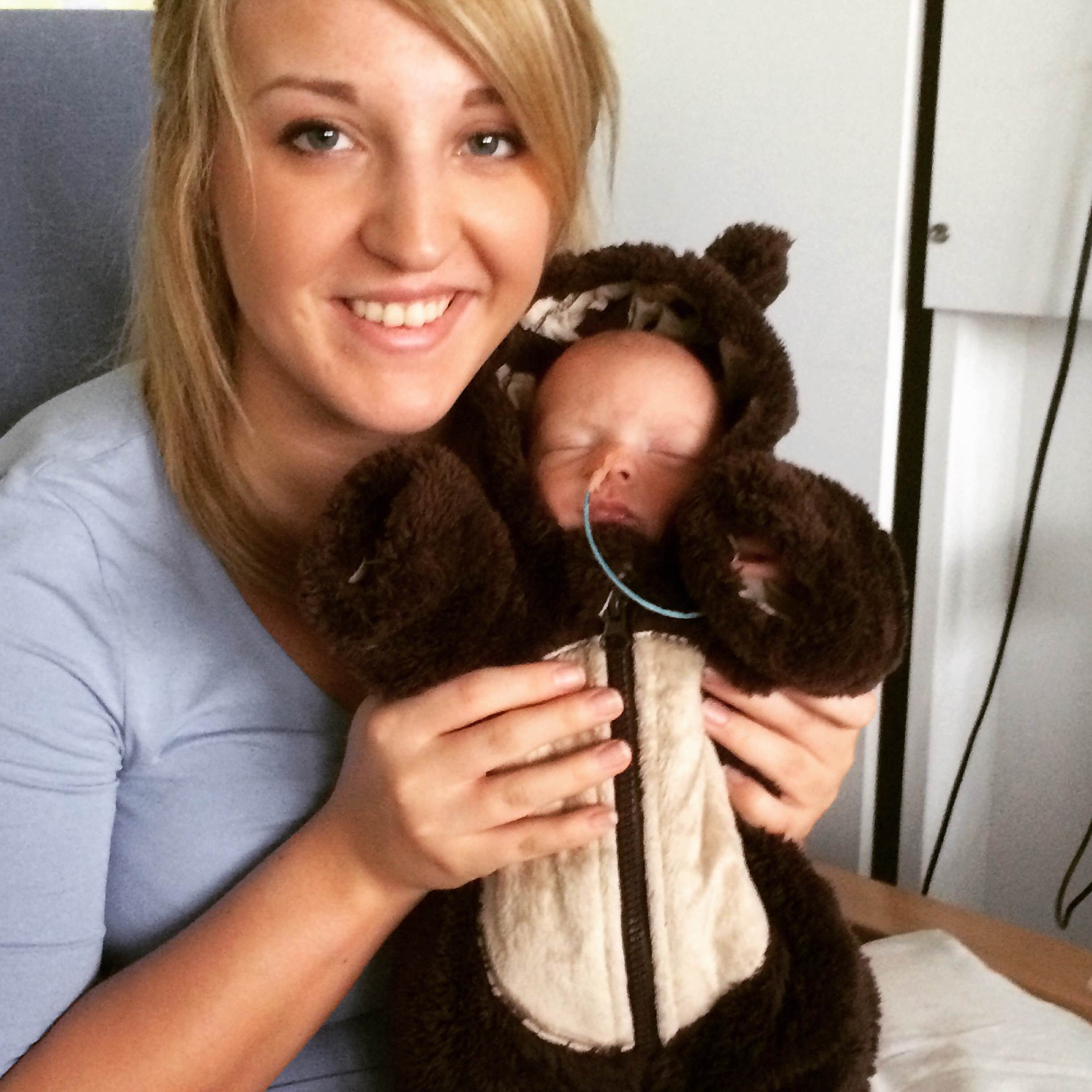
Once Matthew had reached 32 weeks gestation, our local SCBU was able to care for him, and this was a massive relief for many reasons. I had spent approximately £100 in parking at ERI, and that wasn’t including the fuel cost of a 28 mile round journey daily for two weeks. Of course, money and cost was the last thing on my mind at the time, I would have spent every last penny I had if it meant being with Matthew, there was no option, but as a single mother on government statutory maternity pay the impact of that would hit later on financially.
Once in St. John’s SCBU, Matthew went from strength to strength, and after just one minor set back, we went home on New Year’s Eve 2014 to begin our brand new year as mother and son properly.
Matthew had been labelled a FTT child (failure to thrive) and at the time I thought: “How dare you say that about my child! I’ll show you.” Not one medical professional explained what this meant and what this would entail for the rest of his infant life and the issues we would face as the months went by.
Matthew struggled to gain weight from the start, he was on the last centile and it has always been a constant stress. When the time came for weaning, Matthew took well to the stage one of highly blended food. I had no real guidance on weaning a premature baby, I just went on blind thinking, how hard can it be? Then stage two came of introducing slightly more textured food when he was around eight months. Matthew would gag and vomit with textured food. I thought it was what I was feeding him so spent a fortune on various different baby friendly foods as well as trying to make my own but he wouldn’t tolerate anything, and in addition to this strange behaviour I had noticed how distressed he was with mess compared to other babies his age. It was then that I knew myself as his mother there was an underlying issue with sensory processing disorder as well as possible autistic characteristics.
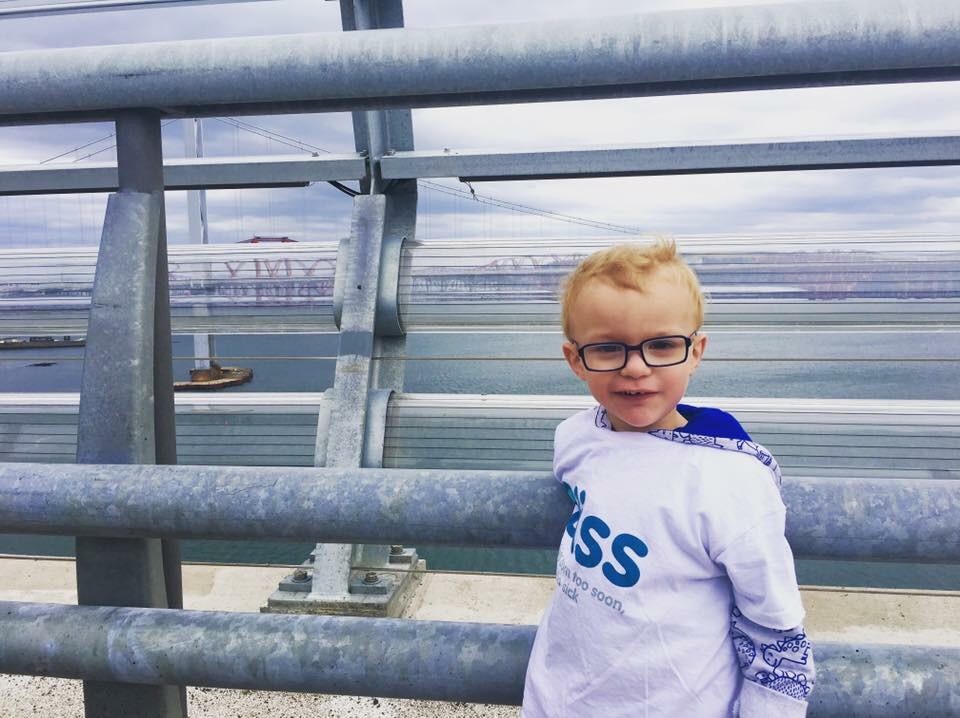
As Matthew grew, I found myself in constant battles with paediatricians trying to get them to listen to what was going on. I would constantly be fobbed off and told “It’s just because he was premature”, “He’s still small” and this blanketed excuse is a premature parent’s primary pet peeve! Matthew would not tolerate solid foods well, and after research and speaking to support groups as well as reading loads of literature from Bliss I asked them to give me high calorie supplements to help, but they kept telling me to keep trying with solid food and offering suggestions of high calorie foods to give him. They refused to hear Matthew would not eat and I didn’t know why.
In winter 2016 just after his second birthday Matthew caught one virus after the other and ended up being hospitalised. Only then after losing so much weight and dropping off the charts did someone finally agree that he should be prescribed daily high calorie supplements. Slowly the medical staff were beginning to see things from my perspective.
Matthew had obvious speech delay and was referred to speech and language therapy (SALT) at the beginning of the year. He had his own little language, which I was learning, but he would get so upset and frustrated at not being able to communicate the way he wanted. Finally after months of pushing and persistence the word ‘autism’ was being said by medical staff. I wasn’t sad or upset, I was hopeful that I was so close to getting him the help and support he needed, and he was referred to the child development clinic which has a ridiculous wait of six months. We are almost at Matthew’s first assessment and possibly at the start of getting a diagnosis.
Over the last three years, Matthew has had over 80 medical appointments – from routine weighs, immunisations, to physio, ophthalmology, audiology, MRIs, surgery you name it. He has spent over 2,000 hours in hospital from neonatal units to children’s wards.
Having a premature baby doesn’t end at discharge. It is a life long journey for some families, and many go through far more than we have. Financially, it is really tough. I have been self-employed for nearly two years now because there is barely a month or even week that goes by that we don’t have some sort of appointment, and for me to ask an employer for that time off constantly is nearly impossible. Being self-employed and working from home gives me the ability to provide the care that Matthew needs, but there is absolutely no government support or consideration to parents in this position and I’m sure I’m not the only one.
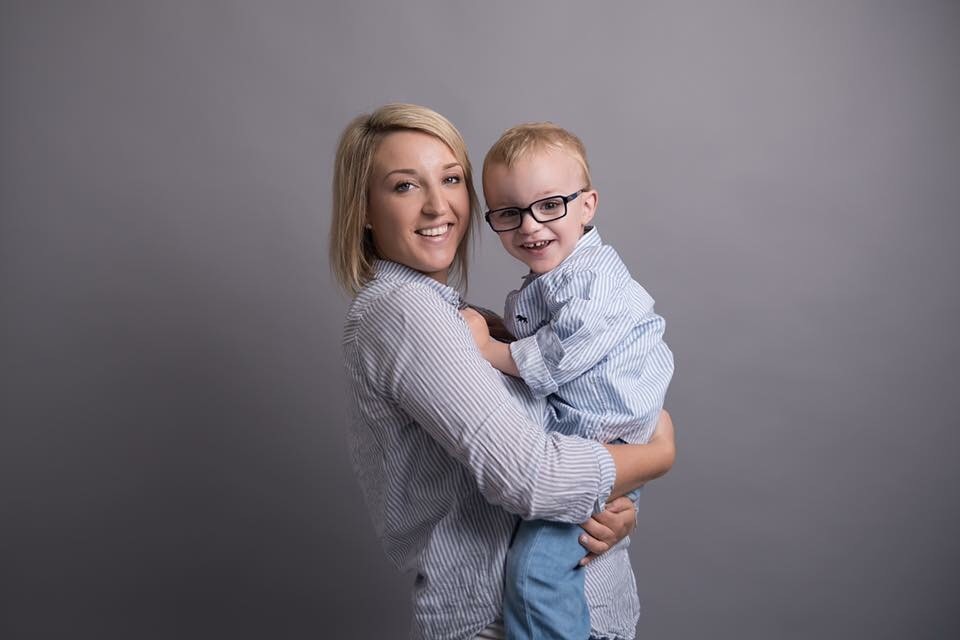
This week (28 November 2017) Bliss Scotland have launched a campaign to address the lack of facilities on neonatal units in Scotland. As part of the campaign, Bliss Scotland is calling for urgent intervention from the Scottish Government to provide financial support for parents who are on neonatal units today, and who are facing increased costs as a result of their baby’s stay. Find out more and support the campaign here
